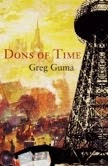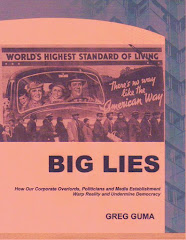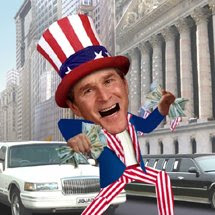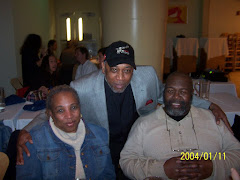Like a rising tide that had reached its limit, the roaring sixties crashed to a climax with a wrenching change of direction. The decade that began with Camelot dreams ended with an eruptive rush of anxiety and fear. As racial tensions smoldered in Malaysia and the Soviet Union cracked down in Czechoslovakia, there were military coups in Syria, Lybia, Somalia, and the Sudan, border clashes between Chinese and Soviet troops, race and campus riots across the United States, and dozens of airplane hijackings. In Northern Ireland, the bloody era known as The Troubles began. In a way, that label said it all.
Ensconced in the White House, President Nixon talked about “peace with honor” in Vietnam but ordered the secret carpet bombing of Cambodia. Between 1969 and 1973, the US Air Force dropped half a million tons of bombs on the country and killed someone with every ton, drove rural people into the cities, destroyed the agricultural system, and caused a famine that was later blamed on the Khmer Rouge. The US would soon begin withdrawing troops, but the war in Southeast Asia was widening.
Closer to home, confrontations between power and the people intensified – even famous people like Muhammad Ali, convicted for refusing to serve in the Army, and Timothy Leary, sentenced to 10 years in prison for marijuana possession. In May, when thousands of protesters tried to stop the University of California from building dorms on the site of People’s Park in Berkeley, Ronald Reagan, California’s first movie star governor, placed the city under martial law, complete with riot police and tear gas-spraying helicopters. An FBI memo later revealed his plan to wage “psychological warfare” on the state’s college campuses.
Although far from the action in a small New England town, covering school boards and ribbon cutting ceremonies, I was frustrated and angry. Vietnam was in flames, violence and repression threatened to destroy the country, and there I was, seeing it happen but doing nothing. Then I remembered my high school hero Lincoln Steffens. As a journalist I could do more than report; I could move and convince. Somehow I needed to combine observation with advocacy, to lay out “shameful” facts in a way that would ignite civic conscience and the impulse to change.
There was no local anti-war movement, except for a few privileged college students who kept their protests on the campus. But Bennington had its own forms of injustice, and it didn’t take much to uncover them. Not far from downtown, for example, poor families lived in squalor. Local ghettos had existed for years, neglected and out of sight. I decided to make them impossible to ignore.
My first expose, published on Memorial Day weekend in 1969, was called “Welcome to Carrigan Lane.” Illustrated with photos of tenants and grotesque living conditions – broken pipes, no running water, roofs with gaping holes, un-insulated walls, and all manner of hazards that endangered children – the story let the poor speak for themselves. But it also pointed out why such conditions had been allowed to fester for so long: Bennington had no housing codes.
The response was exactly what I had hoped – widespread outrage and enough public pressure to force village officials to act. A study committee quickly decided that minimum standards and effective enforcement were essential solutions. It would take a year for results to emerge, but my muckraking had sparked a local reform movement with the potential to improve the living conditions of the powerless.
Every day the teletype brought more evidence of change. Less than 200 miles to the south in Greenwich Village the struggle for homosexual rights was raging, sparked by days of fighting between police and patrons outside a gay bar called the Stonewall Inn. It became known as the Stonewall Rebellion. At times it felt like the country was descending into a maelstrom of violence. In Baton Rouge, the National Guard was called out to handle racial conflict. In York, Pennsylvania’s “White Rose City,” once the capitol of revolutionary America, Mayor Charles Robertson handled a riot after a young black woman was murdered by distributing ammunition to white gang members. "Kill as many niggers as you can," he allegedly told them.
California’s Zodiac killer was winding down his spree, but actress Sharon Tate and four others were brutally murdered in her Beverly Hills home. The world would soon meet Charles Manson and his bizarre cult followers. Almost as if fueled by the violence in the air, Ohio’s polluted Cuyahoga River caught fire.
There were two hopeful and unprecedented events that summer. On July 20, Neil Armstrong took his legendary "one small step for man, one giant leap for mankind” on the moon, and several weeks later, more than half a million people gathered peacefully in upstate New York for the largest concert in history -- The Woodstock Music and Art Fair. Even torrential rain couldn’t stop young music lovers from celebrating peace and living in harmony. At least for a few days. But those memorable moments were merely the brief calm before a darker storm.
Compelled to share my sense of foreboding, I began writing an editorial page column. Its kicker – the lead-in phrase that appeared above the column’s headlines -- was “Polarities in Our Time.” Each week I reflected on the growing division in a country wracked by assassinations, self-righteous backlash, political disintegration, and the impotence of liberals. By examining prejudice, hypocrisy and stereotypes, I hoped to convince the community that the cause wasn’t hippies, gays, militant Blacks or anti-war protesters but rather the nation’s unjust policies and corrupt leaders.
Eventually, I honed in on a story that encapsulated the dynamic – the trial of the Chicago Eight. Here was clear evidence that the empire was striking back. The “power structure” couldn’t allow the riots during the Democratic National Convention in 1968 to be remembered as a time when the cops, supposedly protectors of democracy, became brutal aggressors. If someone else was found guilty, the authorities – and the state itself – might still be vindicated. Such was the twisted logic of the day.
NEXT: War at Home -- Chicago and COINTELPRO































No comments:
Post a Comment